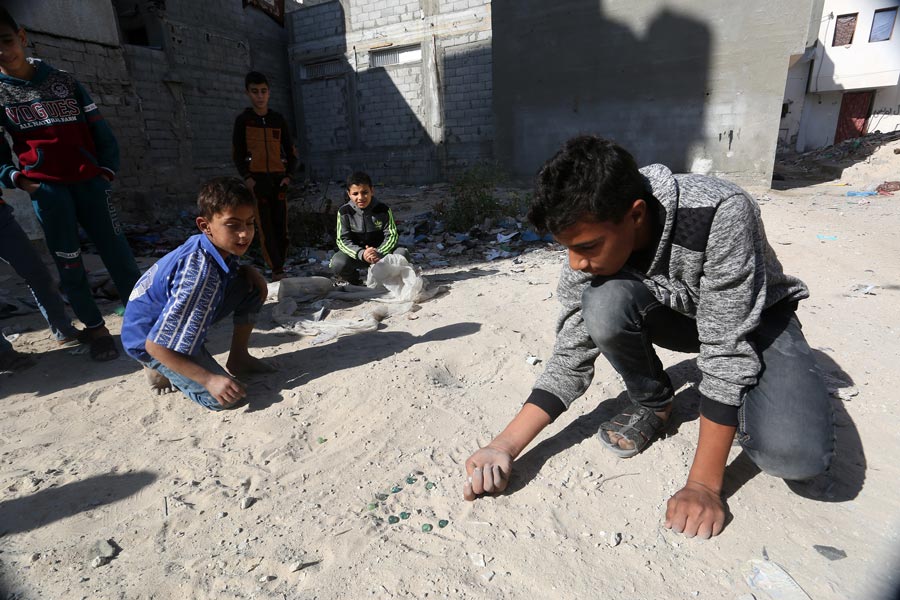4 Out Of 5 Children In Gaza Say They Are Living With Depression, Grief And Fear

Fifteen years of life under blockade has left four out of five children in the Gaza Strip reporting that they live with depression, grief and fear, according to disturbing findings released by Save the Children.
The research found the mental wellbeing of children, young people and caregivers has dramatically deteriorated since a similar study in 2018, with the number of children reporting emotional distress increasing to 80% from 55%. These findings again show that maintaining the current status quo is negatively impacting children’s wellbeing and hopes for a better future.
The report, titled “Trapped”, found a huge increase in children who reported feeling fearful (84% compared to 50% in 2018), nervous (80% compared to 55%), sad or depressed (77% compared to 62%) and grieving (78% compared to 55%). It also found that more than half of Gaza’s children have contemplated suicide[i] and three out of five are self-harming .
It is now more critical than ever that the government of Israel lifts the blockade of the Gaza Strip, and that local authorities, the international community and donors support the rapid strengthening of child protection and mental health support services for affected children, Save the Children said.
In the past 15 years, children in the Gaza Strip have endured six major moments – five escalations in violence and the COVID-19 pandemic – as well as a life-limiting land, air, and sea blockade imposed by the government of Israel. Children make up 47% of Gaza’s population of two million, with over 800,000 having never known life without the blockade[iii].
As well as physical harm, economic deprivation and lack of access to essential services such as healthcare, the blockade has sparked a mental health crisis for children and young people, research shows.
Amr, 14, still remembers how afraid he felt during the escalation in violence last year: “During the night, I couldn’t sleep because I had a nightmare. I was really afraid that they would bomb our house or would bomb our neighbours again. I was on edge. I would tell my dad about the nightmares and he would reassure me that it won’t happen. Then I would go back and try to sleep again.”
Related Posts
Syrian girl who survived horrors of war crowned Arab Reading Challenge champion
A Syrian schoolgirl who survived a deadly missile attack during the civil war in her country has been crowned Arab Reading Challenge champion in Dubai….
November 11, 2022Kind Hearts book is launched in Wexford Library where children recount life in Syria
We’ve become accustomed to seeing children arriving into this country from war-torn nations, grown used to images of terrified people seeking refuge in this safe-haven we have provided. But rarely do we see beyond those pictures, those snippets in time, each of them fading, merging into one as further conflict erupts in lands anew….
October 18, 2022


